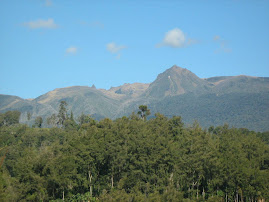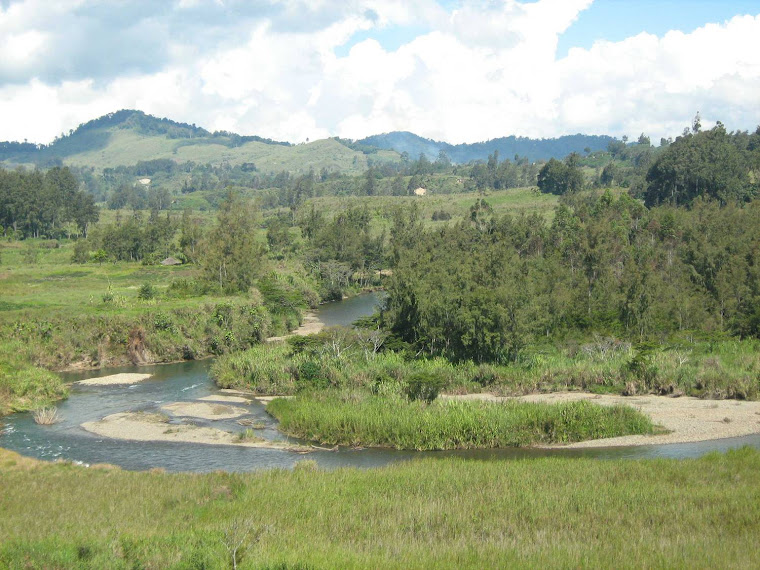The Beijing Summer Olympic magic number
By Mathew Yakai in Changchun, China
AUGUST 8, 2008, or 08-08-08, is more than just a date: it marks both the opening of the Beijing Olympic Games and is considered a lucky day for marriage with so many eights.
It is estimated that 15,000 couples will marry in Beijing on the day and 130,000-140,000 this year.
The grand opening is on Friday 8 and the first game at 8pm.
Today, the sacred Olympic Flame is in Sichuan for its last leg before it arrives in Beijing on Wednesday 6 for the grand opening on August 8.
Sichuan is given a special leg because of the devastating May 12 earthquake that left about 4.8 million people homeless with millions perished under the debris of the deadliest earthquake in China’s modern history.
The Flame passed through 100 cities in China and 18 cities around the globe, making it the longest leg in the Olympic history. Not only that. The flame also reached the highest peak, Mt Everest.
Thus, this game is very special that you should not miss, either on your TV screen or live in Beijing.
According to the Olympic Committee, there are reasons why you should not miss the Game
1. The 100,000-strong army of Beijing Olympic volunteers is the largest in Olympic history.
Each of the 70,000 Olympic and 30,000 Paralympic volunteers has undergone months of training.
2. 2008 is the first time one organizing team will oversee both the Olympics and Paralympics.
3. High-definition technology will be used for all TV broadcast operations, with all events and ceremonies enjoying 5.1 surround sound, a first for the Olympics.
4. A record 4 billion people are set to watch the Beijing Games.
Beijing Olympic Broadcasting (BOB), the official broadcaster of the Games, will produce about 5,400 hours of programs during the 17-day gala, 2,000 more than in Athens four years ago.
5. The International Olympic Committee (IOC) has, for the first time, separately sold broadcasting rights for television and new media such as Internet and mobile networks.
CCTV (China’s Central TV) acquired the TV rights for the Beijing Games, while CCTV.com was awarded the domestic Internet and mobile platform license.
6. About 40,000 journalists will cover the Games, including 21,600 accredited media workers in press, broadcasting and television.
The Beijing International Media Center will also provide some 10,000 non-accredited journalists work areas and accommodation, among other services.
7. To help host a successful Games, six cities in China have joined Beijing as co-hosts. Tianjin, Shanghai, Qinhuangdao in Hebei province and Shenyang in Liaoning province will stage some Olympic soccer matches.
The coastal city of Qingdao in Shandong province will host the sailing regatta, while Hong Kong, a city with a long history of horse racing and matching first-class facilities, will play host to equestrian events.
8. To modernize the Games, the IOC will introduce two new sports: Bicycle motocross (BMX) and the 10km marathon swim.
9. Some 600 cheerleaders from all over the country will go all out to entertain spectators with Chinese folk dancing, acrobatics, drum shows, lion dancing and martial arts during time-outs.
10. The Olympic Forest Park, 680 hectares of plantation and lakes, has given the city a new green lung.
Beijing also built a number of new water purification plants for daily water recycling, replaced dated equipment at its power plants and retrofitted gas stations citywide.
Beijing has also planted millions of trees to minimize sandstorms.
11. The Beijing 2008 Olympic Torch Relay was scheduled to travel the longest distance and include the largest number of people over 130 days.
It reached the highest peak of Mount Qomolangma (Mt Everest) on May 8.
12. A 170-page Chinese Menu in English Version is seen as exemplary of one success of the English-speaking campaign throughout the city.
Pop stars teaching audiences correct English pronunciation and cab drivers toting language books all are part of Beijing's multilingual pre-Olympic effort.
13. A total of 4,104 Chinese have been named Aoyun (Chinese for "the Olympics") in homage to the Beijing Olympic Games, according to the figures released by the National Citizen Identity Information Center under the Ministry of Public Security in June.
Nearly 700 of the names were registered in 1992, when Beijing first applied to host the Games and another 553 were registered in 2001, when the city officially won the bid. About 92 percent of those named Aoyun are male.
14. Games organizers have held an annual Olympic cultural festival since 2003.
China's ancient culture and civilization are now being showcased to promote the Olympic spirit and publicize a green, hi-tech and people's Olympics.
15. Educating young people through sports is one of the primary goals of the Olympic Movement.
About 400 million young people in more than 500,000 schools across the country have received Olympic lessons ahead of the Beijing Games
16. The anti-doping effort at the Beijing Games will be more extensive than ever, with as many as 4,500 doping tests, 25 percent more than in Athens four years ago and 90 percent more than in Sydney in 2000.
17. The cost of the Beijing Games will dwarf the previous Olympics in Greece with total investment likely to reach $43 billion.
Venues, estimated to have cost about $1.8 billion to build, will be utilized as public sport and entertainment complexes afterwards.
Beijing also spent $16 billion in the past decade reducing smog, while additional infrastructure, such as the world's largest airport terminal, T3, an advanced railway station and new subway systems required vast expenditure.
18. Beijing's first subway linking Fuxingmen and Beijing Railway Station was initially built for military use, but today, 1.5 million passengers ride the 2-yuan subway each day.
The existing subway network spans 155 km and has 93 stations.
19. Multiple Olympic mascots are not uncommon, but for the first time more than three figures will share Summer Olympic mascot duty when the five Fuwa take center stage.
Featuring four of China's most popular animals - the fish, the panda, the Tibetan antelope and the swallow - and the Olympic flame, the mascots' names are "Beibei," "Jingjing," "Huanhuan," "Yingying" and "Nini," which together reads in Chinese as "Beijing welcomes you".
20. Beijing wished for its Olympic venues to be an expansion of its history and culture, both of which are firmly set on the spine of the city, a 7.7 km axis line running right through the emperor's seat at the Forbidden City, the middle of Tian'anmen Square, the Drum and Bell towers and Yongdingmen.
The north-south axis was believed to bring eternal stability, prompting designers of the Bird's Nest and the Water Cube to position them on either side of it.
In doing so, they have integrated modern ideas with the deep-rooted spirit of the Middle Kingdom.
21. Since launching the Beijing 2008 Olympic Marketing Plan in September 2003, a total of 63 enterprises have become sponsors of the Beijing Games, including 12 worldwide Olympic partners.
22. China will field its largest Olympic team to date when about 570 athletes contest 28 sports in Beijing.
23. Taking into account China's average purchasing power, BOCOG ensured a low-price policy for Beijing Olympic and Paralympic tickets.
Opening ceremony prices were capped at 5,000 yuan ($641) per head, while the lowest price to a sports competition was 30 yuan ($4).
Closing ceremony tickets ranged from 150-3,000 yuan ($19-385).
24. In striving for excellence, various Chinese national teams have invited foreign coaches to guide them.
More than 30 foreign coaches are currently working with the Chinese Olympic team.
25. A group of Chinese-born athletes representing other countries or regions will be an important force in Beijing.
26. A number of Chinese coaches will lead foreign teams on home soil, such as women's volleyball legend Lang Ping, who will lead the US women's team.
Meanwhile, former coach of the Chinese badminton team Li Mao will lead the South Korean team.
27. Olympic medals are for the first time made of metal and jade. The medals were inlaid with Kunlun jade from China's Qinghai province in a symbol of "respect" and "virtue" in the Chinese tradition.
28. People who love Chinese martial arts must not miss the Beijing 2008 Wushu Tournament to be held on the sidelines of the Beijing Olympic Games from Aug 21 to 24 at the Olympic Sports Center Gymnasium.
29. Significance of 08-08-08 - It is no coincidence that the Beijing Games begins at 8 pm on the 8th day of the 8th month of '08.
The number 8 has special significance to the Chinese, because 8 in Chinese is pronounced "ba", which sounds a lot like "fa", which means prosperity or wealth.
In Chinese culture, 8 also denote the number of immortals and structure of trigrams, both of which are linked to auspicious ideas.
Also, when two digits of the number 8 are placed together - "88" - they resemble the stylized form of two Chinese ""characters, hence representing double happiness, a popular motif usually pasted upon the doors of newly married Chinese couples.
The number 8 is highly favored among the Chinese for its connotations of good luck, fortune and longevity.
Good luck to Beijing Olympic, the great game.
And for team PNG, this commentary wishes you all the best in your performance. Your presence in the Game will further strengthen the bilateral relationship between PNG and Great China.
Note: “Asia-Pacific Perspective: China +” looks at Chinese society, culture, economy, governance and China’s role within the Asia-Pacific region and the world over. It mainly focuses on how PNG can learn from China’s experience. The writer is a PNG student in China
American movie include Fijians as cast and crew
7 years ago








